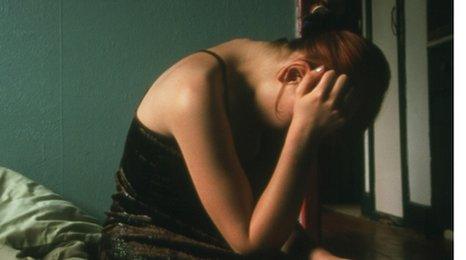Not enough done to tackle cyberbullying, warns NSPCC
- Published
Not enough is being done to tackle cyberbullying, according to the NSPCC.
The UK's largest children's charity says better awareness has helped to address the problem.
It believes the parents and friends of victims are best placed to help by watching out for any warning signs.
New research for Radio 1 Newsbeat as part of Safer Internet Day suggests more than one in 10 teenagers has been bullied on mobiles or online.
One thousand teenagers across the UK were questioned for the survey and 12% said they had been cyberbullied.
'You're nothing'
With 5.3m teenagers in the UK that would mean more than half a million of them had been a victim of online bullying.
Eighteen-year-old Carney Bonner from Swindon says he was cyberbullied when he was 14.

Carney was 14 years old when he became a victim of cyberbullies
"It was literally 24/7," he said.
"I'd be getting woken up at three in the morning getting texts saying, 'Go kill yourself, you're nothing.'
"That's what destroyed me the most, the fact that it wasn't in school time but that I was at home and asleep and would read these messages and then wake up to them."
Carney says the effect it had on him was devastating.
"It made me really anxious because I was looking behind my shoulder because I didn't know who it was," he admitted.
"Then I started missing school. Then it got to the point when I started to self-harm."
Counselling
Seeing no way of escaping from bullies is a problem suffered by many cyberbullying victims.
John Grounds is a director at the NSPCC.
He said: "The thing about cyberbullying is that it doesn't stop at the school gates.
"It follows you home, it follows you over the weekend, it doesn't leave you alone.
"The next thing that needs to happen is that parents need to focus on educating the children they come into contact with into staying safe online.
"It's always the case in all kinds of abuse that one of the biggest sources of help for young people is other young people.
"There are signs that might suggest one of your friends needs help.
"If that's the case don't hold back. Ask them if something's wrong and give them some advice about where they might be able to go."
Follow our technology reporter Dan Whitworth on Twitter., external
- Published3 November 2011

- Published28 September 2011

- Published15 November 2010

- Published19 November 2009

- Published16 November 2009
